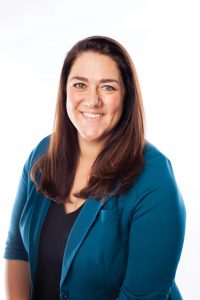Q+A: Genetic Counseling
April 29, 2022
 Katie Lang, MS, CGC, is the director of Cancer Genetic Counseling Services and the medical director of Genetic Medicine at Vanderbilt University Medical Center.
Katie Lang, MS, CGC, is the director of Cancer Genetic Counseling Services and the medical director of Genetic Medicine at Vanderbilt University Medical Center.
Q Who should undergo genetic testing for cancer risk?
A Our understanding of genetics and cancer is rapidly evolving, so this question can be tricky. But, generally speaking, we know that a person or family is more likely to have a hereditary risk for cancer when certain red flags are present. Those include cancers diagnosed earlier than usual, for example, breast, colon or uterine cancer earlier than 50. Having the same type of cancer in several relatives is another red flag. Some different types of cancer can be due to the same gene, so seeing colon and uterine in close relatives, or breast, prostate, ovarian and/or pancreatic cancers in close relatives can also be a red flag. There are certain types of cancer where having just one close relative with that cancer would make a person a good candidate for testing, and those include ovarian cancer or pancreatic cancer.
Q What types of cancer risk can be identified through genetic testing?
A Most common types of cancer that people have heard of — breast, colon, prostate, uterine, ovarian, pancreatic and others — have some genes associated with them. While genes have been discovered that are associated with many different types of cancer, they are not the explanation for most family histories. Overwhelmingly, most cancers are NOT hereditary. Only about 5% to 10% of cancers are hereditary.
Q What does the actual visit and test entail?
A Genetic testing for cancer risk can be done through a saliva sample or a blood sample. There are often questions about accuracy between the two. There is no difference in accuracy whether a sample is collected via saliva or blood because our DNA is the same throughout our bodies. These days, we offer many patients telemedicine appointments since our consult is primarily a discussion. Patients can be comfortable at home, and we are able to do an entire session exactly as it would be in person. Then we can order the testing and have a saliva kit mailed to them and set up another telemedicine appointment to go over results.
Q Is genetic testing covered by insurance?
A People are often surprised to hear that this testing is covered very well by insurance when patients have certain personal or family histories of cancer.
Q If a test does determine an inherited risk, does that mean someone will actually get cancer?
A No. Some people can live their whole lives with an inherited cancer risk and never develop cancer. It depends on the gene in question. The risks for cancer can vary greatly from a moderately increased risk all the way up to risks that approach 100% without any intervention. Our job is to help patients understand what their results mean for them and their family and to put together a tailored screening plan based on the current understanding of that particular gene.
Q How can people contact Vanderbilt to learn more about genetic testing?
A If people are interested in meeting with us, they can call our clinic at 615-343-7400. Patients can also ask their doctors for a referral, and if they have a referral in the system, they can actually schedule an appointment online.
